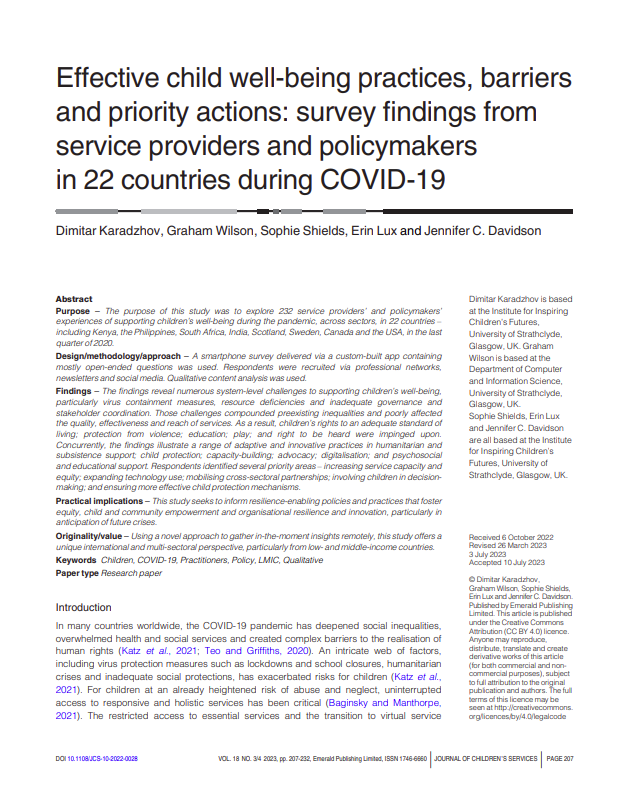The purpose of this study was to explore 232 service providers’ and policymakers’ experiences of supporting children’s well-being during the pandemic, across sectors, in 22 countries – including Kenya, the Philippines, South Africa, India, Scotland, Sweden, Canada and the USA, in the last quarter of 2020. A smartphone survey delivered via a custom-built app containing mostly open-ended questions was used. Respondents were recruited via professional networks, newsletters and social media. Qualitative content analysis was used. The findings reveal numerous system-level challenges to supporting children’s well-being, particularly virus containment measures, resource deficiencies and inadequate governance and stakeholder coordination. Those challenges compounded preexisting inequalities and poorly affected the quality, effectiveness and reach of services. As a result, children’s rights to an adequate standard of living; protection from violence; education; play; and right to be heard were impinged upon. Concurrently, the findings illustrate a range of adaptive and innovative practices in humanitarian and subsistence support; child protection; capacity-building; advocacy; digitalisation; and psychosocial and educational support. Respondents identified several priority areas – increasing service capacity and equity; expanding technology use; mobilising cross-sectoral partnerships; involving children in decisionmaking; and ensuring more effective child protection mechanisms.



